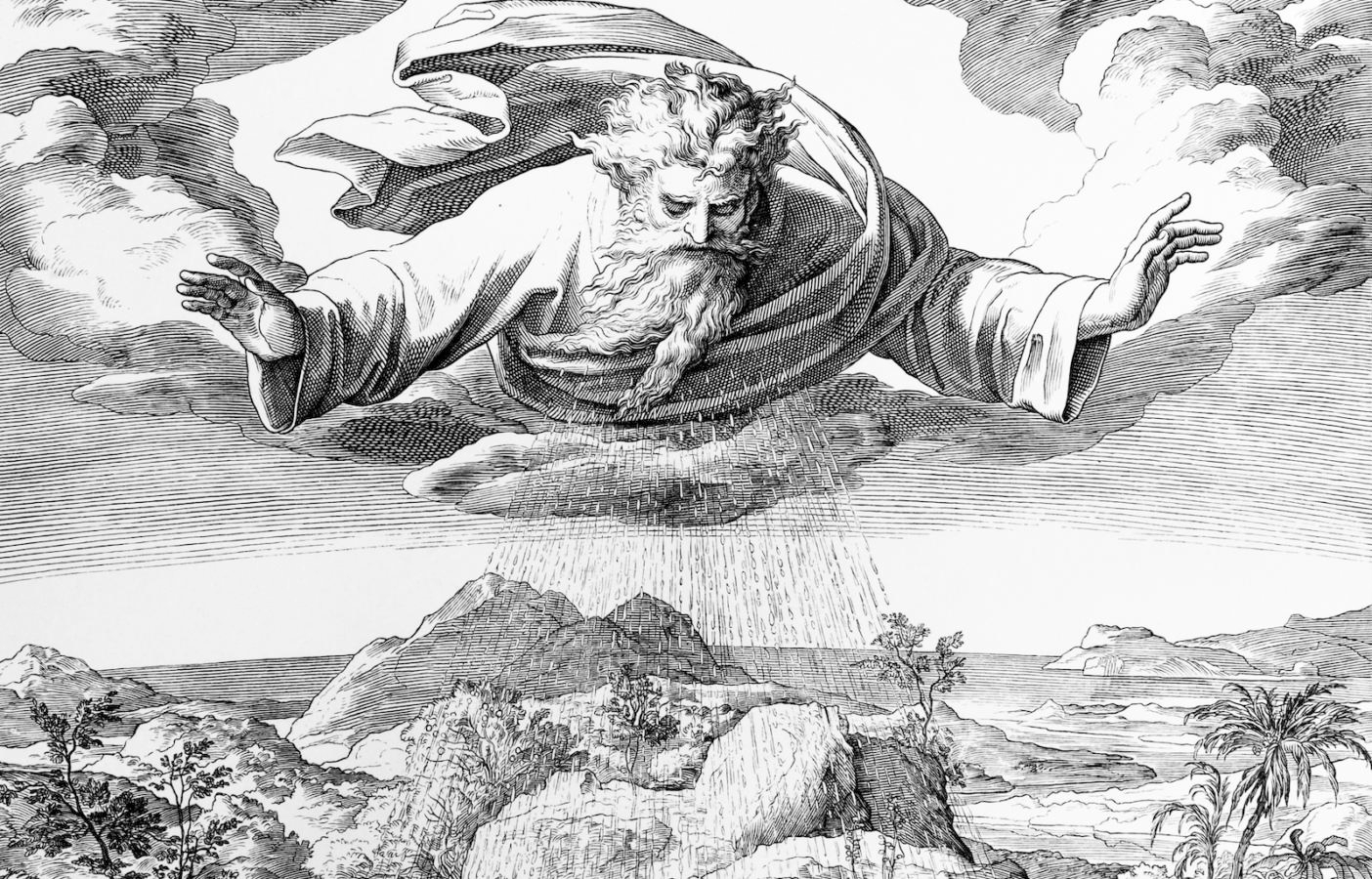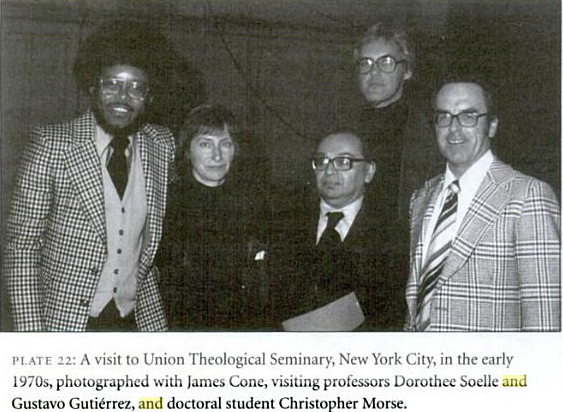River Needham M.A., queeries the Tanakh reading.
Tanakh:
1 Samuel 16:1-13
And the Becoming One said to Samuel, “How long will you grieve over Saul, since I have rejected him as king over Israel? Fill your horn with oil and set out; I am sending you to Jesse the Bethlehemite, for I have decided on one of his sons to be king.”
Samuel replied, “How can I go? If Saul hears of it, he will kill me.”
The Becoming One answered, “Take a heifer with you, and say, ‘I have come to sacrifice to the Becoming One.’
Invite Jesse to the sacrificial feast, and then I will make known to you what you shall do; you shall anoint for me the one I point out to you.”
Samuel did what the Becoming One commanded. When he came to Bethlehem, the elders of the city went out in alarm to meet him and said, “Do you come on a peaceful errand?”
"Yes,” he replied, “I have come to sacrifice to the Becoming One. Purify yourselves and join me in the sacrificial feast.” He also instructed Jesse and his sons to purify themselves and invited them to the sacrificial feast. When they arrived and he saw Eliab, he thought: “Surely the Becoming One’s anointed stands before Them.” But the Becoming One said to Samuel, “Pay no attention to his appearance or his stature, for I have rejected him. For not as man sees does the Becoming One see; man sees only what is visible, but the Becoming One sees into the heart.” Then Jesse called Abinadab and had him pass before Samuel; but he said, “The Becoming One has not chosen this one either.” Next Jesse presented Shammah; and again he said, “The Becoming One has not chosen this one either.” Jesse presented seven of his sons before Samuel, and Samuel said to Jesse, “The Becoming One has not chosen any of these.” Then Samuel asked Jesse, “Are these all the boys you have?” He replied, “There is still the youngest; he is tending the flock.” And Samuel said to Jesse, “Send someone to bring him, for we will not sit down to eat until he gets here.” So they sent and brought him. He was ruddy-cheeked, bright-eyed, and handsome. And the Becoming One said, “Rise and anoint him, for this is the one.” Samuel took the horn of oil and anointed him in the presence of his brothers; and the spirit of the Becoming One gripped David from that day on. Samuel then set out for Ramah.
Queeries for the text:
What do we
fear?
Who do we ignore in
society?
Who gets
ignored, forgotten and
canceled?
What work does society not
value?
What is man? What is human?
What external characteristics are valued by
nature, or by
humans?
What else
happened in
Ramah?
-----
Rev. Emily E. Ewing queeries the Gospel reading.
Gospel:
John 9:1-41
As Jesus walked along, he saw a man blind from birth.
2Jesus' disciples asked him, “Rabbi, who sinned, this man or his parents, that he was born blind?”
3Jesus answered, “Neither this man nor his parents sinned; he was born blind so that God’s works might be revealed in him.
4We must work the works of Them who sent me while it is day; night is coming when no one can work.
5As long as I am in the world, I am the light of the world.”
6When Jesus had said this, he spat on the ground and made mud with the saliva and spread the mud on the man’s eyes,
7saying to him, “Go, wash in the pool of Siloam” (which means Sent). Then the man went and washed and came back able to see.
8The neighbors and those who had seen the man before as a beggar began to ask, “Is this not the man who used to sit and beg?”
9Some were saying, “It is he.” Others were saying, “No, but it is someone like him.”
The man kept saying, “I am the man.”
10But they kept asking him, “Then how were your eyes opened?”
11He answered, “The man called Jesus made
mud, spread it on my eyes, and said to me, ‘Go to Siloam and wash.’ Then
I went and washed and received my sight.”
12They said to the man, “Where is he?”
He said, “I do not know.”
13They brought to the Pharisees the man who had formerly been blind.
14Now it was a sabbath day when Jesus made the mud and opened the man's eyes.
15Then the Pharisees also began to ask him
how he had received his sight. He said to them, “Jesus put mud on my eyes.
Then I washed, and now I see.”
16Some of the Pharisees said, “This man is
not from God, for he does not observe the sabbath.” But others said,
“How can a man who is a sinner perform such signs?” And they were
divided.
17So they said again to the blind man, “What do you say about him? It was your eyes he opened.”
The man said, “Jesus is a prophet.”
18The Judeans did not believe that the man had
been blind and had received his sight until they called the parents of
the man who had received his sight
19and asked them, “Is this your son, who you say was born blind? How then does he now see?”
20His parents answered, “We know that this is our son, and that he was born blind;
21but we do not know how it is that now he
sees, nor do we know who opened his eyes. Ask him; he is of age. He
will speak for himself.”
22His parents said this because they were
afraid of the Judeans; for the Judeans had already agreed that anyone who
confessed Jesus to be the Messiah would be put out of the synagogue.
23Therefore his parents said, “He is of age; ask him.”
24So for the second time they called the
man who had been blind, and they said to him, “Give glory to God! We
know that this man is a sinner.”
25He answered, “I do not know whether he is a sinner. One thing I do know, that though I was blind, now I see.”
26They said to him, “What did he do to you? How did he open your eyes?”
27He answered them, “I have told you
already, and you would not listen. Why do you want to hear it again? Do
you also want to become his disciples?”
28Then they reviled him, saying, “You are his disciple, but we are disciples of Moses.
29We know that God has spoken to Moses, but as for this man, we do not know where he comes from.”
30The man answered, “Here is an astonishing thing! You do not know where he comes from, and yet he opened my eyes.
31We know that God does not listen to sinners, but They do listen to one who worships them and obeys their will.
32Never since the world began has it been heard that anyone opened the eyes of a person born blind.
33If this man were not from God, he could do nothing.”
34They answered him, “You were born entirely in sins, and are you trying to teach us?” And they drove him out.
35Jesus heard that they had driven him out, and when he found the man, he said, “Do you believe in the Human One?”
36He answered, “And who are they, Captain? Tell me, so that I may believe in them.”
37Jesus said to him, “You have seen them, and the one speaking with you is the one.”
38He said, “Governor, I believe.” And he worshiped Jesus.
39Jesus said, “I came into this world for judgment so that those who do not see may see, and those who do see may become blind.”
40Some of the Pharisees near him heard this and said to him, “Surely we are not blind, are we?”
41Jesus said to them, “If you were blind, you would not have sin. But now that you say, ‘We see,’ your sin remains.”
Queeries for the text:
Why do people so often need
someone to blame?
What happened when someone
was isolated in that time? What happens when someone is
isolated today?
How are God's works revealed in
the ones others
cast off?
What is up with a pool named
Sent?
Why won't the
neighbors believe the truth?
What happens when people are
afraid?
How might a
disabled person understand this story?
What are your queeries?






